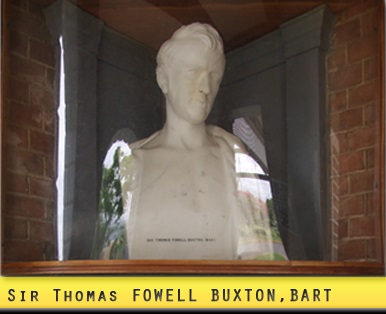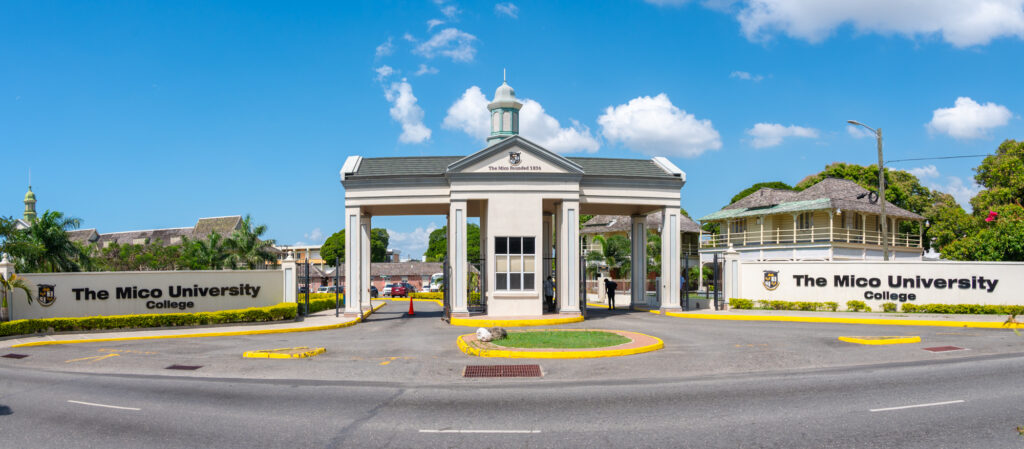
Beginning in 1836, four teacher training institutions and hundreds of elementary schools were established in the British Colonies, in the West Indies, Mauritius and Seychelles by the Lady Mico Charity. This followed the successful efforts of Sir Thomas Fowell Buxton to direct the resources of the Charity to the education of the children of the ex-slaves in these British Colonies (in the West Indies, Mauritius and Seychelles) where slavery was being abolished. In an era where denominational education was the norm, the defining feature of the Mico institutions was that they were of Christian influence but non-denominational.
Except in St. Lucia, most Mico elementary schools did not survive the discontinuation of the Negro Education Grant in 1846 which was provided by the British parliament. Those that survived were overtaken by the twin forces of denominational education and the entry of the Colonial Governments into the provision of elementary education. The elementary schools in St. Lucia survived the longest until the 1890s.
The only teacher training institution to survive into the 21st Century and that remains until today is The Mico in Kingston, Jamaica. Its founding in 1836 makes it the oldest teacher training institution in the Western Hemisphere and one of the oldest in the world rivalling the famed Battersea College in England.
The survival of The Mico in Kingston is rooted in four characteristics of the institution.
- Remaining true to its character as a Christian but non-denominational institution.
- Its capacity to respond to the changing developmental needs of the Jamaican and Caribbean society.
- Its ability to attract able and ambitious students and to provide them with high quality education.
- The performance of Mico graduates in society.
The Mico was founded as a co-educational institution. After the cessation of the Negro Education Grant, when it was determined that it was more economical to train native teachers, Mico transformed itself into a single-sex male institution training elementary native school teachers. In the 1950s, it become co-educational again and remains so. When the Government of Jamaica expanded secondary education in the 1960s, the junior secondary schools were introduced. The Mico included in its portfolio, the training of teachers for junior secondary schools. By the end of the 1970s. The Mico further expanded its training of teachers for secondary schools to cover the entire range of secondary education.
By then, it had become the institution, which was training the largest number of secondary school teachers in the country.
In the same period, the Government started training teachers for children with special needs, as well as, funding for the training of teachers in these schools. Consequently, The Mico was selected by the Government to offer this training. By the 1980’s, The Mico was not only providing such teachers for schools in Jamaica, but for the entire English-speaking Caribbean. In addition, through assistance from the Government of the Netherlands, the College established The Mico College Diagnostic and Therapeutic Centre (The CARE Centre); to diagnose the learning challenges of multiple handicapped children and design individualised instructional techniques for these students. This centre is the only one of its kind in the Commonwealth Caribbean and has gained international recognition.
The Mico and the University of the West Indies (UWI), pioneered a relationship in the area of special education in which the bachelor’s degree in Special Education was jointly taught at the college using the facilities of the CARE Centre. Through this arrangement, Mico became an affiliate of the University of the West Indies and gained the experience of offering programmes at the degree level.
The record of achievement, in successfully taking on new challenges has earned the college the reputation of being a leader in education development in Jamaica and the Caribbean. In seeking to meet the current challenges of Jamaica and the Caribbean, The Mico has substantially increased tertiary education enrolment by offering degree programmes to greater number of citizens. It is no surprise therefore, that in 2006, the Ministry of Education by an Act of Parliament upgraded The Mico to a University College and mandated it to make the majority of its offerings degree programmes in teacher education and related areas.

The Mico University College now offers undergraduate and graduate degree programmes through our three faculties:
- Education
- Humanities and Liberal Arts
- Science and Technology
Additionally, The Mico offers further studies through its School of Continuing Studies which supports students in upgrading their qualification for matriculation into undergraduates and graduate programmes. In addition, The Mico also offers four (4) masters programmes through its Graduate School of Education. The School also collaborates with the Institute of Technological and Educations Research (ITER) in Research projects.
